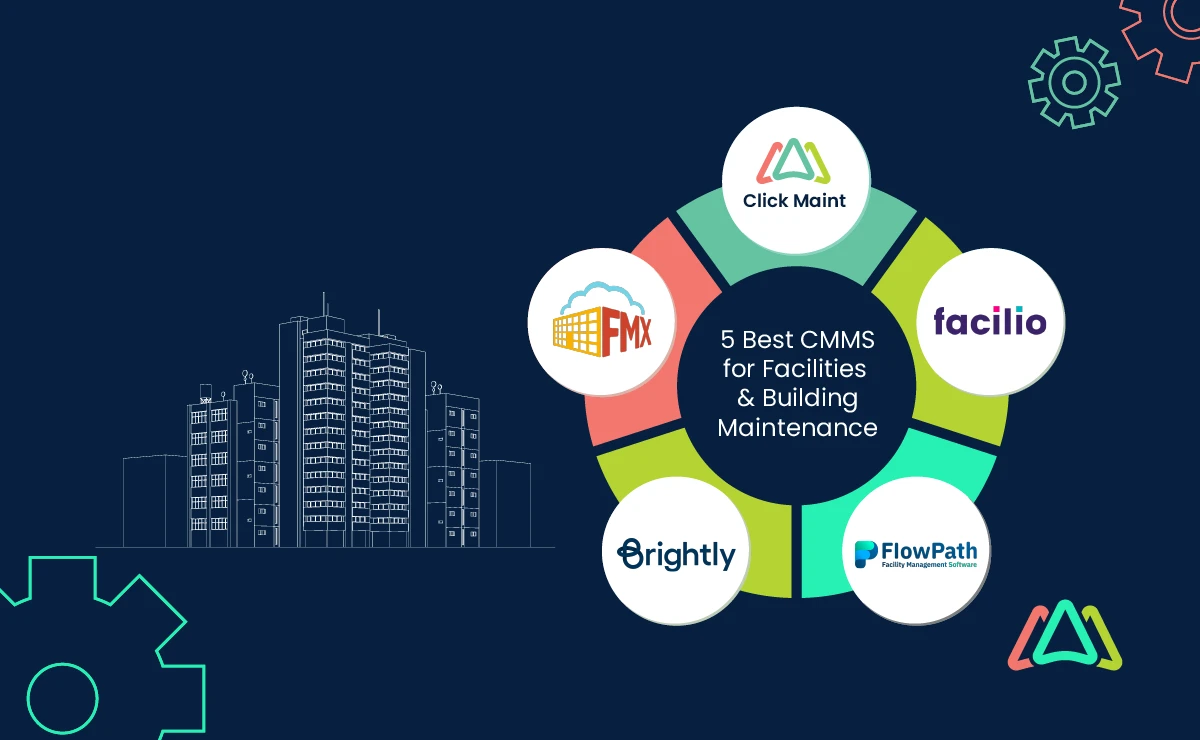Ideal Practices in Facility Management for Modern Organizations
Ideal Practices in Facility Management for Modern Organizations
Blog Article
Key Trends Shaping the Future of Center Monitoring in 2024
As we look ahead to 2024, the landscape of center monitoring is positioned for significant improvement, driven by several vital fads. The integration of smart building technologies and a shift towards data-driven decision-making assurance to improve operational performance while prioritizing sustainability in practice.
Smart Building Technologies
Smart structure innovations encompass a large range of systems, including smart illumination, heating and cooling controls, and safety systems. By incorporating these systems, facility managers can monitor and adjust parameters in real-time, causing substantial reductions in power waste and operational costs. Wise sensing units can discover tenancy degrees and adjust lighting and temperature level appropriately, making certain that power is just utilized when necessary.
Furthermore, these technologies promote boosted information collection, allowing companies to track use patterns and identify opportunities for further renovations. The execution of wise structure modern technologies not just adds to sustainability goals however additionally creates healthier job atmospheres that can enhance staff member performance and complete satisfaction.
As we relocate into 2024, the adoption of clever structure modern technologies will likely speed up, mirroring a more comprehensive shift in the direction of more smart, responsive, and lasting center administration techniques.
Data-Driven Decision Making
Progressively, companies are leveraging data-driven decision making to improve facility administration practices. By harnessing data analytics, center managers can derive workable insights that substantially improve functional effectiveness and source allotment. The combination of advanced modern technologies, such as IoT sensors and real-time monitoring systems, makes it possible for the collection of huge amounts of data on structure efficiency, occupancy prices, and power intake.
This wide range of details enables center managers to recognize trends, predict maintenance demands, and proactively address concerns before they escalate. Anticipating analytics can forecast equipment failings, lowering downtime and fixing prices. Additionally, data visualization devices assist in much better interaction among stakeholders, making certain that educated decisions are made collaboratively.
Furthermore, data-driven approaches boost tactical planning by enabling center managers to analyze the efficiency of current methods and make informed options concerning investments in modern technology or facilities. As companies increasingly focus on functional quality, data-driven decision making is positioned to become a foundation of effective facility administration methods in 2024 and beyond. Ultimately, the capability to take advantage of information effectively will equip companies to create a lot more effective, productive, and resilient facilities.
Sustainability and Environment-friendly Practices
The focus on data-driven decision making naturally straightens with the expanding focus on sustainability and eco-friendly practices within facility administration. As companies progressively focus on ecological obligation, center supervisors are leveraging analytics to optimize source usage, minimize waste, and lessen carbon footprints. This tactical strategy enables the integration of discover this energy-efficient systems, such as LED lighting, wise a/c controls, and renewable power resources into facility procedures.
Moreover, the execution of lasting practices extends beyond power consumption. Center supervisors are adopting environmentally friendly products and advertising reusing campaigns to create a round economy within their centers. This not just enhances the ecological account of the company yet likewise fosters a society of sustainability amongst employees.
Conformity with ecological laws is an additional essential element driving the adoption of eco-friendly methods. By utilizing data analytics, center managers can keep track of conformity metrics and determine locations for improvement, guaranteeing adherence to international and neighborhood sustainability standards.
Hybrid Work Designs
A considerable change towards hybrid work versions is improving the landscape of center monitoring in 2024. This paradigm integrates in-office and remote work, necessitating a reevaluation of space usage, resource allowance, and worker interaction approaches. Organizations are increasingly identifying the importance of flexible work areas that accommodate varied requirements and preferences.
Facility supervisors need to adjust by applying versatile office layouts that support collective initiatives while providing locations for concentrated work. This includes the assimilation of technology to assist in seamless communication and partnership among in-office and remote workers. Smart structure remedies, outfitted with analytics and sensors, allow for real-time tracking of area use, enabling companies to maximize their environments efficiently.
Moreover, crossbreed job models emphasize the requirement for reliable facility monitoring that prioritizes employee experience. This encompasses not just innovation and area design however additionally the advancement of plans that advertise a well balanced work-life dynamic. As companies browse this change, the role of center management ends up being critical in producing a dexterous office that fosters performance and drives business success. Fundamentally, the hybrid job version is revolutionizing center management, motivating a positive approach to satisfy the evolving needs of the labor force.
Boosted Occupant Health
As companies embrace hybrid job designs, a heightened focus on occupant wellness is becoming important to center management strategies. Facility Management. This change acknowledges that a satisfied and healthy labor force straight influences performance and retention prices. Facility managers are now focusing on atmospheres that promote physical and mental well-being, integrating components such as natural lights, biophilic layout, and obtainable wellness resources

Modern technology plays an important role in this advancement. Smart building systems can monitor ecological variables and adjust settings in real-time, making certain ideal convenience levels - this hyperlink Facility Management. In addition, feedback systems, such as tenancy sensors and worker studies, enable facility supervisors to continually fine-tune wellness initiatives based on resident needs.

Conclusion
In 2024, the future of center administration will certainly be considerably affected by the assimilation of smart structure modern technologies and data-driven decision-making, promoting boosted functional efficiency. Sustainability efforts will certainly focus on environmentally friendly methods, while the appearance of hybrid work designs will certainly demand flexible office styles. An enhanced focus on passenger health with innovative Cooling and heating systems and biophilic design will certainly add to much healthier job settings. These trends jointly underscore the advancing landscape of center administration in action to modern difficulties and chances.
Center supervisors are advertising and embracing environmentally friendly materials reusing efforts to create a round economic situation within their facilities.A significant change towards hybrid job designs is reshaping the landscape of center administration in 2024.Moreover, crossbreed work versions highlight the need for reliable facility administration that prioritizes employee experience.As organizations accept hybrid job designs, an increased focus Visit Website on passenger wellness is coming to be important to facility administration strategies.In 2024, the future of center management will certainly be considerably affected by the combination of clever building modern technologies and data-driven decision-making, promoting boosted operational performance.
Report this page